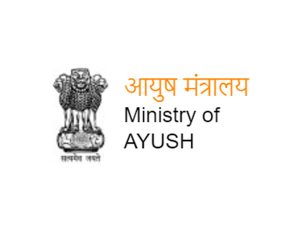Three Researches proves that cannabis can grow brain cells
24 min read
The International Journal of Neuropsychopharmacology
July 2013
The anxiolytic effect of cannabidiol on chronically stressed mice depends on hippocampal neurogenesis: involvement of the endocannabinoid system.
Cannabidiol (CBD), the main non-psychotomimetic component of the plant Cannabis sativa, exerts therapeutically promising effects on human mental health such as inhibition of psychosis, anxiety and depression.
However, the mechanistic bases of CBD action are unclear.
Here we investigate the potential involvement of hippocampal neurogenesis in the anxiolytic effect of CBD in mice subjected to 14 d chronic unpredictable stress (CUS).
Repeated administration of CBD (30 mg/kg i.p., 2 h after each daily stressor) increased hippocampal progenitor proliferation and neurogenesis in wild-type mice. …
CBD administration prevented the anxiogenic effect of CUS in wild type but not in GFAP-TK mice as evidenced in the novelty suppressed feeding test and the elevated plus maze.
This anxiolytic effect of CBD involved the participation of the CB1 cannabinoid receptor, as CBD administration increased hippocampal anandamide levels and administration of the CB1–selective antagonist AM251 prevented CBD actions.
Studies conducted with hippocampal progenitor cells in culture showed that CBD promotes progenitor proliferation and cell cycle progression and mimics the proliferative effect of CB1 and CB2 cannabinoid receptor activation. …
These findings support that the anxiolytic effect of chronic CBD administration in stressed mice depends on its proneurogenic action in the adult hippocampus by facilitating endocannabinoid-mediated signalling.
http://journals.cambridge.org/action/displayAbstract?fromPage=online&aid=8930251
PLOS ONE (Public Library of Science)
May 2013
Activation of Type 1 Cannabinoid Receptor (CB1R) Promotes Neurogenesis in Murine Subventricular Zone Cell Cultures
The endocannabinoid system has been implicated in the modulation of adult neurogenesis.
Here, we describe the effect of type 1 cannabinoid receptor (CB1R) activation on self-renewal, proliferation and neuronal differentiation in mouse neonatal subventricular zone (SVZ) stem/progenitor cell cultures.
Expression of CB1R was detected in SVZ-derived immature cells (Nestin-positive), neurons and astrocytes.
Stimulation of the CB1R … increased self-renewal of SVZ cells, as assessed by counting the number of secondary neurospheres … Moreover, … treatment for 48 h, increased proliferation …
Surprisingly, stimulation of CB1R … also promoted neuronal differentiation (without affecting glial differentiation), at 7 days, as shown by counting the number of NeuN-positive neurons in the cultures.
Moreover, by … a method that allows the functional evaluation of neuronal differentiation, we observed an increase in neuronal-like cells.
This proneurogenic effect was blocked when SVZ cells were co-incubated with … the CB1R antagonist AM 251, for 7 days, thus indicating that this effect involves CB1R activation.
In accordance with an effect on neuronal differentiation and maturation … also increased neurite growth …
Taken together, these results demonstrate that CB1R activation induces proliferation, self-renewal and neuronal differentiation from mouse neonatal SVZ cell cultures.
http://www.plosone.org/article/info%3Adoi/10.1371/journal.pone.0063529
The Journal of Clinical Investigation
November 2005
Cannabinoids promote embryonic and adult hippocampus neurogenesis and produce anxiolytic- and antidepressant-like effects
The hippocampal dentate gyrus in the adult mammalian brain contains neural stem/progenitor cells (NS/PCs) capable of generating new neurons, i.e., neurogenesis.
Most drugs of abuse examined to date decrease adult hippocampal neurogenesis, but the effects of cannabis (marijuana or cannabinoids) on hippocampal neurogenesis remain unknown.
This study aimed at investigating the potential regulatory capacity of the potent synthetic cannabinoid HU210 on hippocampal neurogenesis and its possible correlation with behavioral change.
We show that both embryonic and adult rat hippocampal NS/PCs are immunoreactive for CB1 cannabinoid receptors, indicating that cannabinoids could act on CB1 receptors to regulate neurogenesis.
This hypothesis is supported by further findings that HU210 promotes proliferation, but not differentiation, of cultured embryonic hippocampal NS/PCs likely via a sequential activation of CB1 receptors …
Chronic, but not acute, HU210 treatment promoted neurogenesis in the hippocampal dentate gyrus of adult rats and exerted anxiolytic- and antidepressant-like effects.
… suggesting that chronic HU210 treatment produces anxiolytic- and antidepressant-like effects likely via promotion of hippocampal neurogenesis.
Cannabis (marijuana, enhanced kratom capsules, or cannabinoids) has been used for medical and recreational purposes for many centuries and is likely the only medicine or illicit drug that has constantly evoked tremendous interest or controversy within both the public domain and medical research.
Cannabinoids appear to be able to modulate pain, nausea, vomiting, epilepsy, ischemic stroke, cerebral trauma, multiple sclerosis, tumors, and other disorders in humans and/or animals.
However, marijuana has been the most commonly used illicit drug in developed countries, producing acute memory impairment and dependence/withdrawal symptoms in chronic users and animal models. One can also get CBD products online on https://intrinsichemp.com/cbd-cbda-cbn-cbg-cbc-cbdv-differences/
Cannabis acts on 2 types of cannabinoid receptors, the CB1 and CB2 receptors, which are distributed mainly in the brain and immune system, respectively.
In the brain, CB1 receptors are also targeted by endogenous cannabinoids (i.e., endocannabinoids) such as anandamide (AEA), 2-arachidonylglycerol, and arachidonylethanolamide.
The recent discovery that the hippocampus is able to generate new neurons (i.e., neurogenesis) throughout the lifespan of mammals, including humans, has changed the way we think about the mechanisms of psychiatric disorders and drug addiction.
The subgranular zone of the dentate gyrus (SGZ) in the adult brain contains neural stem/progenitor cells (NS/PCs) capable of producing thousands of new granule cells per day.
We, and others, have shown that these newborn hippocampal neurons are functionally integrated into the existing neuroanatomical circuitry and are positively correlated with hippocampus-dependent learning and memory processes and the developmental mechanisms of stress and mood disorders. …
Chronic administration of the major drugs of abuse including opiates, alcohol, nicotine, and cocaine has been reported to suppress hippocampal neurogenesis in adult rats, suggesting a potential role of hippocampal neurogenesis in the initiation, maintenance, and treatment of drug addiction.
The recent finding of prominently decreased hippocampal neurogenesis in CB1-knockout mice suggests that CB1 receptor activation by endogenous, plant-derived, or synthetic cannabinoids may promote hippocampal neurogenesis.However, endogenous cannabinoids have been reported to inhibit adult hippocampal neurogenesis.
Nevertheless, it is possible that exo- and endocannabinoids could differentially regulate hippocampal neurogenesis, as exo- and endocannabinoids act as full or partial agonists on CB1 receptors, respectively.
The goal of the present study was to test the hypothesis that the potent synthetic cannabinoid HU210 is able to promote hippocampal neurogenesis, leading to the anxiolytic and antidepressant effects of cannabinoids.
We demonstrate here that both HU210 and the endocannabinoid AEA promote proliferation of embryonic hippocampal NS/PCs without significant effects on their differentiation, resulting in more newborn neurons.
The effects of HU210 on adult hippocampal neurogenesis were quantified in freely moving rats and were correlated with behavioral testing.
We show that 1 month after chronic HU210 treatment, rats display increased newborn neurons in the hippocampal dentate gyrus and significantly reduced measures of anxiety- and depression-like behavior.
Thus, cannabinoids appear to be the only illicit drug whose capacity to produce increased hippocampal newborn neurons is positively correlated with its anxiolytic- and antidepressant-like effects.
http://www.jci.org/articles/view/25509






